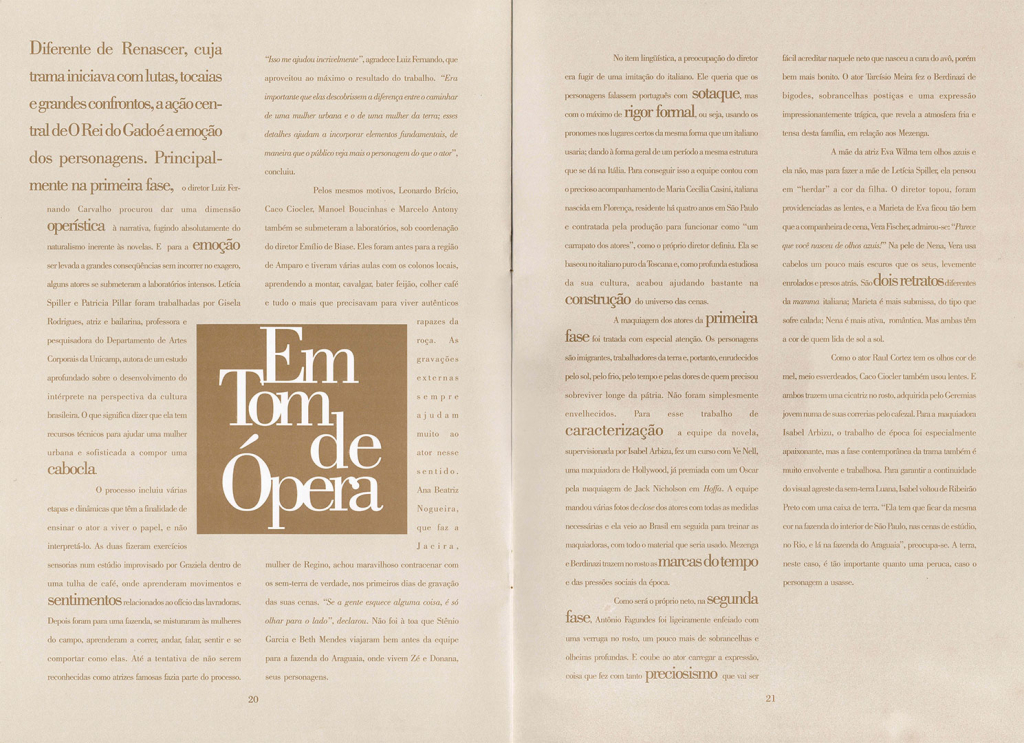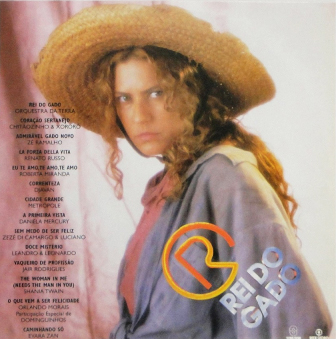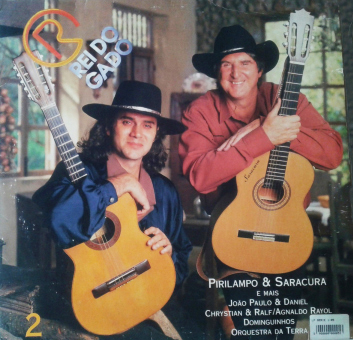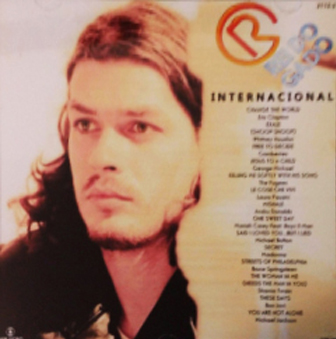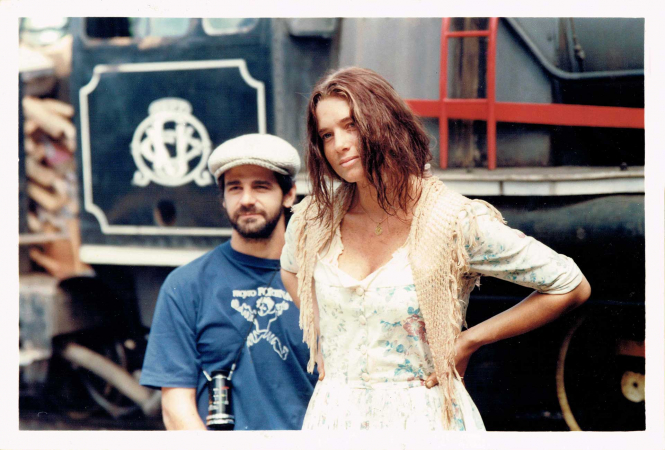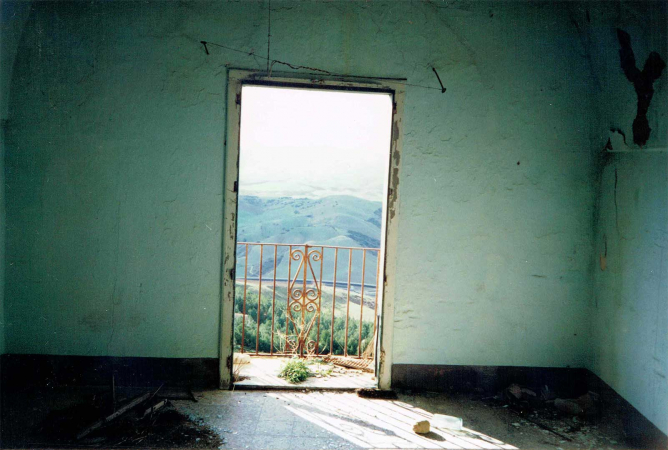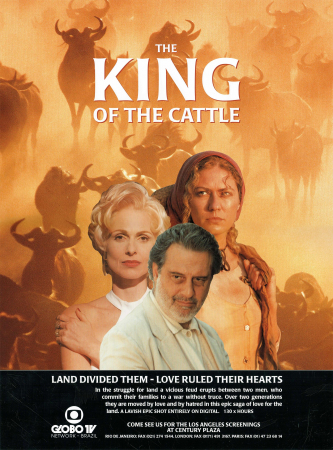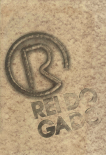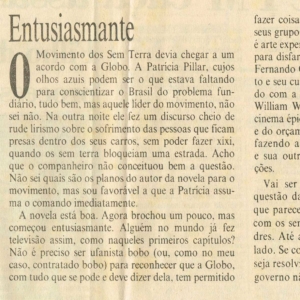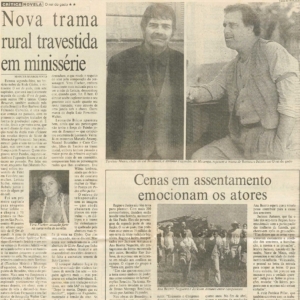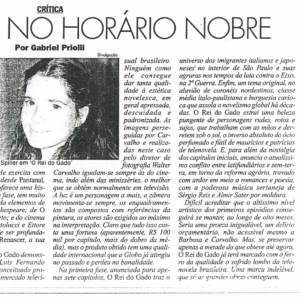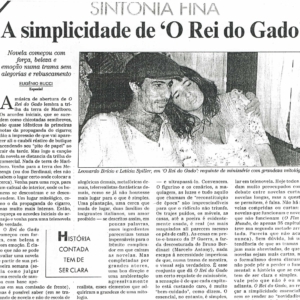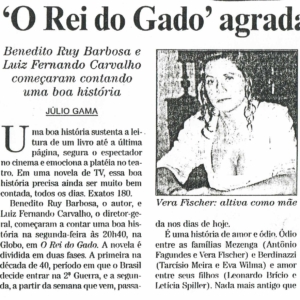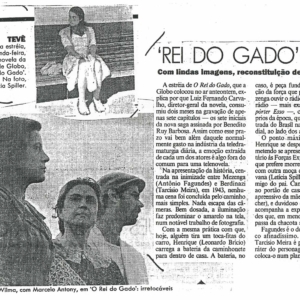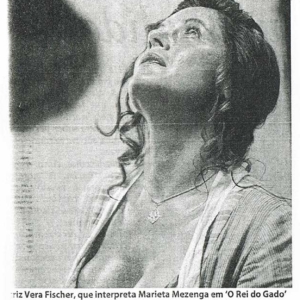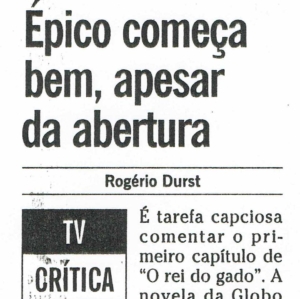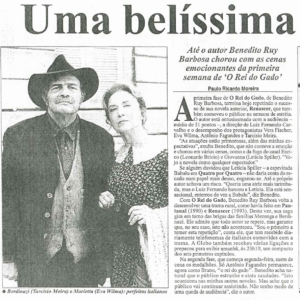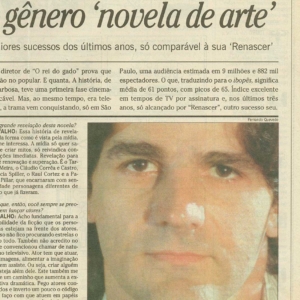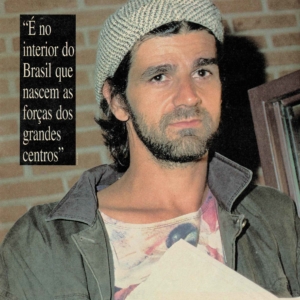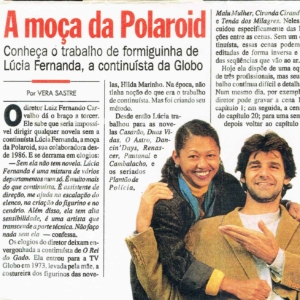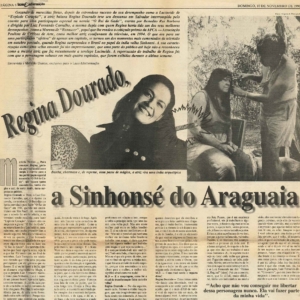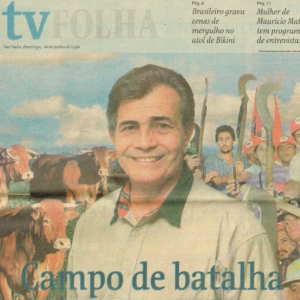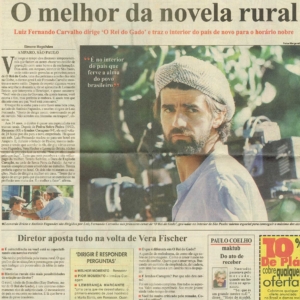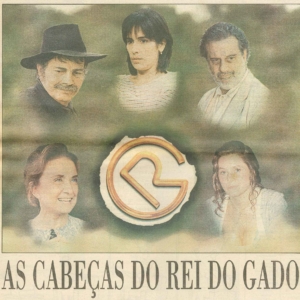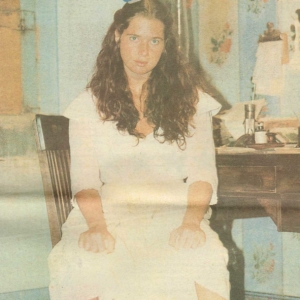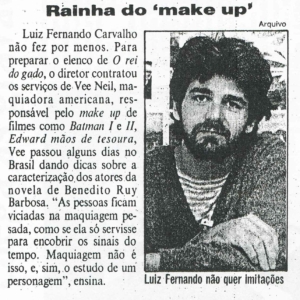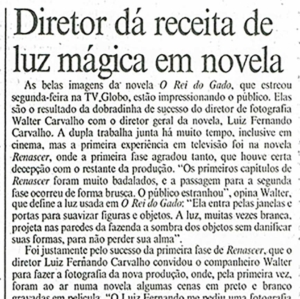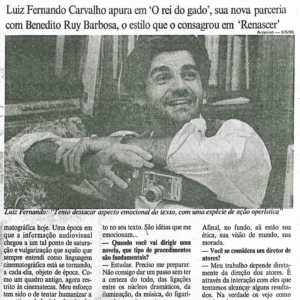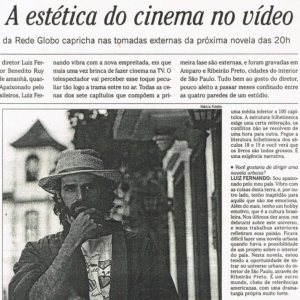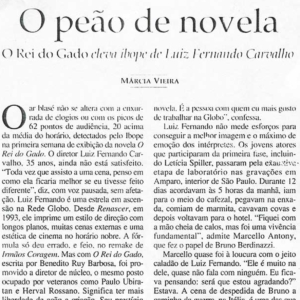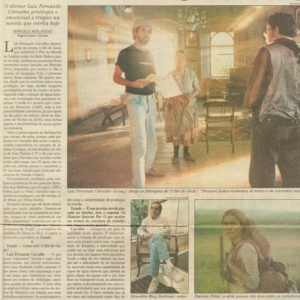Synopsis
The feud between two families of Italian immigrants, the Mezenga and the Berdinazi, who made a fortune by raising livestock and planting coffee, sews both phases of the soap opera. The first part takes place in the 1940s, the period of decay of the coffee cycle and Brazil’s participation in World War II, and reveals the forbidden love of Giovanna, daughter of Marieta and Giuseppe Berdinazi, and Henrico, son of Nena and Antonio Mezenga. The young couple marry under an agreement between enemy families that involves the ownership of part of the Mezenga land. In the face of non-compliance, Berdinazzi locks his daughter at home, when Henrico and Giovanna then decide to runaway.
The forbidden romance between Giovanna and Henrico and the quality of the first seven chapters of the soap opera, all directed by Luiz Fernando Carvalho, was transformed by Rede Globo’s International Division into the miniseries Giovanna and Henrico, starring Letícia Spiller and Leonardo Brício, and selected as hors -concours at the Banff Festival in Canada.
The second phase takes place in 1996, when Giovanna and Henrico’s son Bruno Berdinazi Mezenga is already a rancher and landowner. Although married to Léia and father of Marcos and Lia, the farmer is a lonely man and very dedicated to business.
Bruno Mezenga’s uncle is Geremias Berdinazi, Giovanna’s brother and a wealthy farmer in the coffee and milk production business who blames himself for betraying his family. In the past, he teamed up with his brother Giacomo to steal his mother and sister, and some time later he also betrayed his brother, letting him die in poverty. Geremias Berdinazi had no children and does not recognize Bruno Mezenga as his heir. Anxious to find an heir, he falls for the plot created by Marieta, an impostor impersonating his niece, daughter of Giácomo.
The debate over land tenure is widened when the farm is overrun by Regino, the idealist leader and pacifist landless. In the group of the invaders is the ‘follow-the-crop’ migrant (boia-fria) Luana whom Bruno Mezenga falls in love with. The plot then presents the unlikely romance between a landlord and a landless, which generated enormous repercussions in society and broadened the discussion on the subject beyond the fictional universe. Luana is a survivor of an accident that killed her entire family and is therefore unaware of her origin. Descended from Italians, she is the daughter of Giácomo Berdinazi, the true niece of Geremias Berdinazi.

